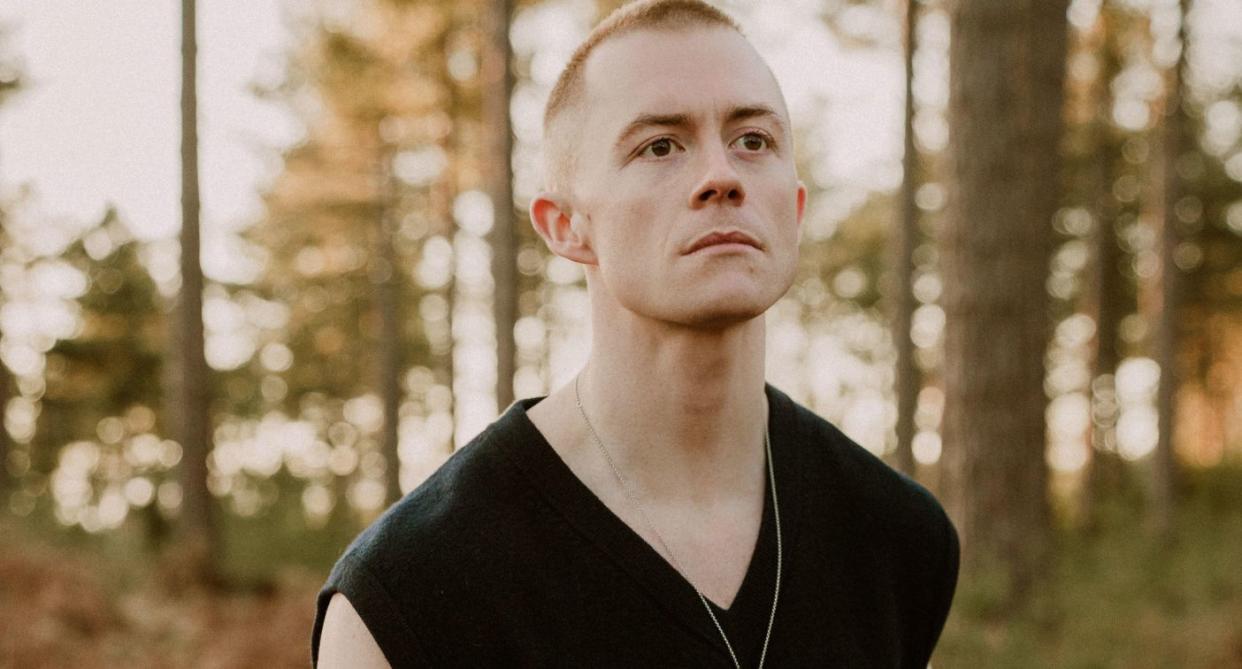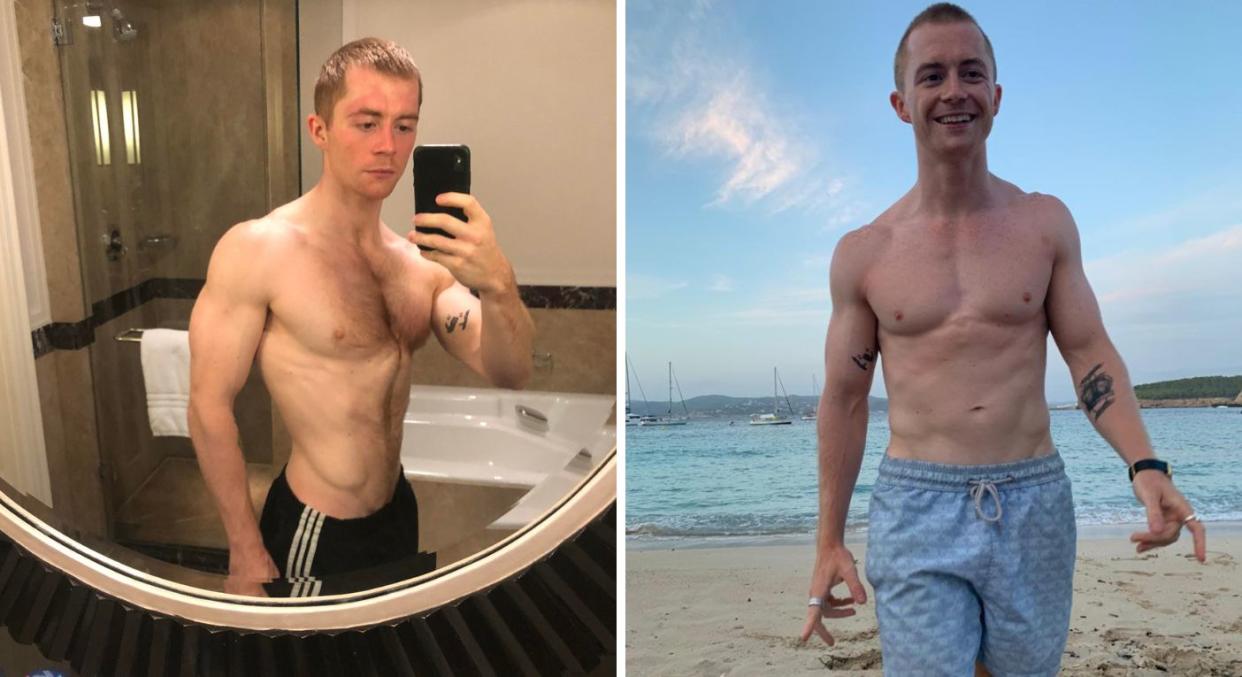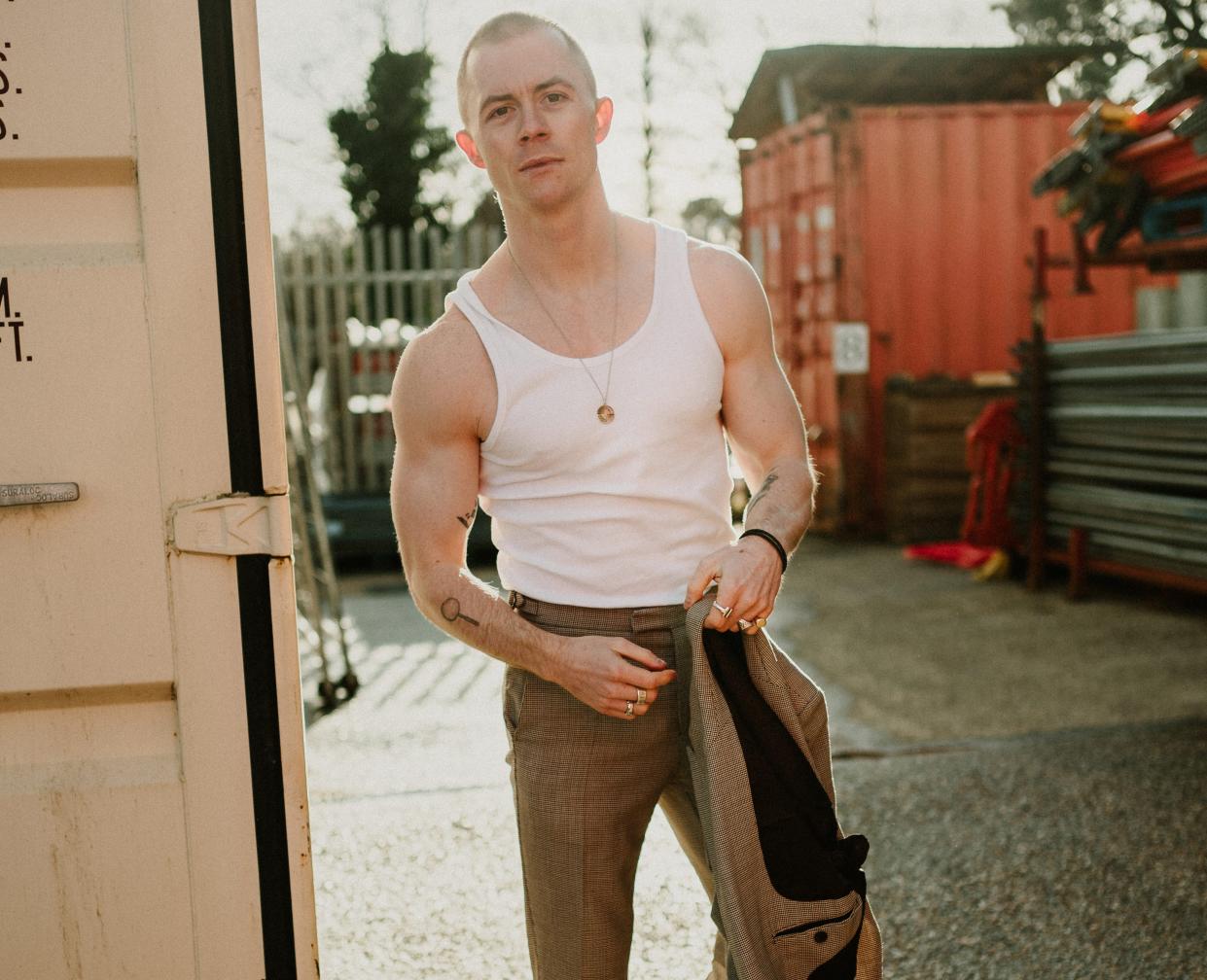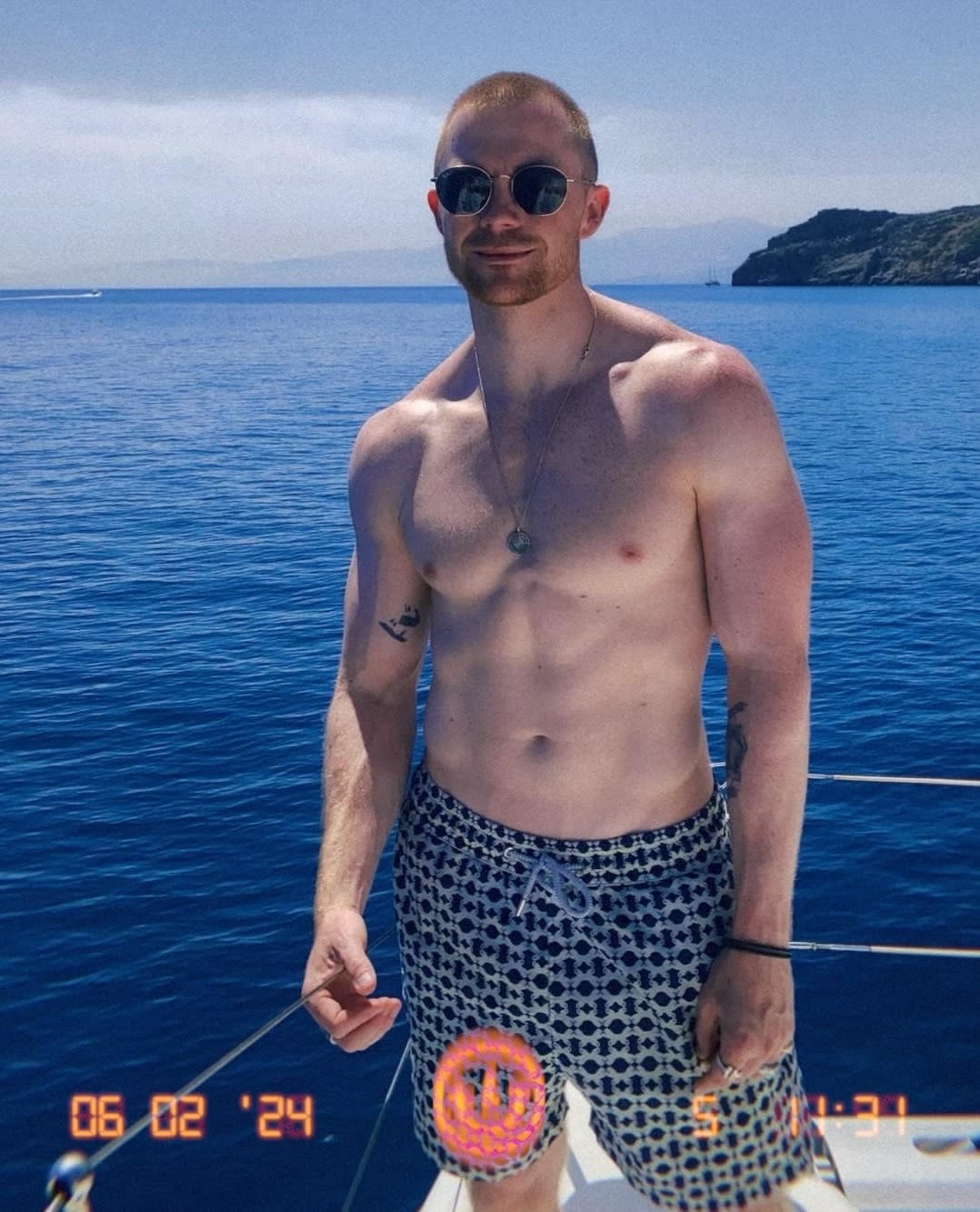
Hollyoaks star Angus Castle-Doughty, 29, developed muscle dysmorphia after taking part in Netflix’s big fantasy show, which at the time marked the biggest job of his acting career. Here, she shares how putting pressure on herself to perform and be “the best” led her to extreme dieting and exercise, and why she’s crowdfunding to make Dis-Morph-Ick, a film inspired by her experiences.
I never thought I was skinny enough, which is why I developed muscle dysmorphia. I thought I was gaining weight all the time, but the opposite was true. When I first lost weight, my stomach shrunk and the skin around my belly button got tight, so there was a seam around it. I used to look and analyze if it is still there.
I generally say I have symptoms of muscle dysmorphia because it is so young that the NHS recognizes it. Body dysmorphia (of which muscle dysmorphia is a subtype) is often mistakenly thought to be about the torso and body fat, but it can often be the way people look at their noses and hair.
In 2019, I was cast in the Netflix fantasy series Shadow and Bone. I was in four episodes and that was huge for me, it was the first thing where I felt like a proper actor. It was a big deal, the budget was big, and Netflix shows tend to be there forever. It was never an external pressure from Netflix, but a pressure I put on myself. We were told early on that there was going to be a nude scene that was just irrelevant. But it occurred to me that I would have to be very thin for that.


I felt very comfortable being hungry because I associated restriction with being disciplined and “working hard at the job at hand” (which is actually unrelated, of course). Many men associate their discipline in the kitchen or gym with masculinity. When I gained body fat, I felt like a failure. It’s still something I’m working on right now.
It was when I resumed my diet after the show that it became a more obvious red flag. Some people who were on a vacation I went on last year talked me into it. It took me out of it a little bit and I started to take an honest look at how I was acting. But then the flip side of it was just me getting fed up and thinking, oh yeah, I’m over it now.
My mother also warned me early on about what I was doing – she was a ballet dancer and had her own body image challenges. He would always check in and be like “hey, I’ve noticed this pattern of behavior coming back, stop it.”
When people told me to stop, that I was horrible to myself and was actually pretty hard to be around, I generally started to recognize that.


I’d go through phases where I wouldn’t think about food and I’d be in a good place, and then something would give me a flare-up, like doing Hollyoaks. The regularity with which I saw myself on TV was quite difficult because you see your natural fluctuations throughout the year.
At some point I thought I could limit alcohol instead, but the way I did it wasn’t healthy either.
But now, when I’m a little bloated or see something, I look at it and instantly realize that no one else is, which is a bit comforting (and shouldn’t matter anyway).
I haven’t gotten professional help, other than that I know it’s out there. I think the main problem with male eating disorders, body dysmorphia and muscle dysmorphia is that many people don’t realize they have a problem. Many men don’t know what they’re suffering from or that it’s even something they can get help for. So they don’t do it until the moment of crisis.
We talk a lot about men’s mental health and when we talk about suicide, we’re always like ‘talk to your mates or your brothers’ so it doesn’t happen, which is important. But it’s never like “talk about every aspect of what’s going on with your mates.”
We need to break the link between discipline, hard work and masculinity and the gym and diet. Social media often portrays that in order to be a successful and hard-working man, you have to wake up at five in the morning, work out twice a day, eat only steak and look a certain way.
When I was in Hollyoaks, my character was a radical misogynist who I researched a lot. I see the same people selling insecurities for profit in the radical anti-feminist space as I do in social media fitness influencers. We also need to destigmatize eating disorders as just a women’s problem.


When I first started contacting people about my movie Dis-Morph-Ick, I’d say I had eating disorders and symptoms of muscle dysmorphia (and before that I had “a bit of an eating thing, an exercise thing”). It’s only been in the last couple of weeks that I’ve realized that I’m pretty sure there’s a full blown eating disorder here.
So it’s about being aware of your relationship with food and exercise. I recently went on holiday to Ibiza and gained weight and ruined my last day with stress about it, so I haven’t broken the code, but it’s a daily thing I’m working on.
I definitely live a much more balanced and healthy lifestyle with food and exercise. Breakfast is a big thing for me now, something I didn’t eat for five years. My partner was always like “you’re absolutely unbearable at 1am” but now of course I have a lot more energy during the day. I used to think that if I ate breakfast I was a failure and it was associated with success.
I don’t have it anymore, and because I give myself what I need, I’m less inclined to binge or restrict. So much of what we think of ourselves is in our heads and not rooted in reality.
I started writing the film because we were in the depths of the strikes and I had just received a very big rejection. I just wanted to write and laugh at myself for being so stupid at the gym, so I wrote this comedy. I was told it was rubbish and rewrote it, which I did. Then it grew from there.
I started talking to charities, finding that the biggest problem in the early prevention of eating disorders in men was a lack of literacy. We saw a real opportunity to make a film that could be entertaining and accessible to people and that they could see themselves in and encourage them to seek help or just destigmatize men who have these issues and show what a lot of people don’t realize they perpetuate. on social media.
I am directing the film and I am only in small cameos. If I have to go through something scary to encourage others to think a little more about how they treat themselves, then so be it.
I don’t necessarily want to identify with an eating disorder for the rest of my life when I get to a stage where I feel really good about everything, and it’s scary to have my name and story attached to it. But that’s my problem, because I think that’s how people feel about it, so I try to own it.
I also think there’s a worry in men’s heads that people don’t care. I’d like to think people care, and I hope they do.
The response to the crowdfunding video has been amazing, but we need more pledges.
You can learn more about the film and give permission here.
Although Angus has not yet sought professional help and currently chooses to use his own coping mechanisms, it is important to seek evidence-based treatment. You can talk to your doctor, get in touch BDD Foundationhelpline email at support@bddfoundation.org or call Samaritans at the number 116 123.
#Muscle #dysmorphia #obsessed #exercise #extreme #diets